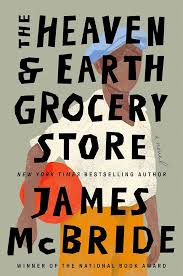Epilogue: The Call Out
byEpilogue: The Call Out begins with two young Jewish brothers, Hirshel and Yigel Koffler, adjusting to a foreign land that challenged every part of their identity—language, food, customs. Six weeks into their American experience, they found themselves working the rails of Pennsylvania, immersed in a landscape of smoke, sweat, and steel. Though fresh to the country, they were quickly drawn into something far larger than a job—something that echoed the underground currents of kindness that shaped America’s hidden stories.
That Memorial Day in 1936, their train ride turned into a quiet act of resistance. In their freight car sat a tall Black man, shielding a crying child, unnoticed by official schedules but carefully coordinated by human compassion. Neither man asked questions; the orders had come from Uri Guzinski, their union boss, who ensured they did as told—escort the man and the boy to Berwyn and pass them along to Pullman porters waiting in pressed white shirts and polished shoes.
Their English was limited, their understanding of American customs even more so, yet they followed through without hesitation. The envelope they received afterward—containing forty dollars and a promise for new shoes—bore the mark of a network that stretched well beyond the railroad. Behind that money was a web of trust: a synagogue in Pottstown, cousins and wives, porters and wives of porters, each playing a part in a quiet rescue effort. The coordination was not official but deeply personal, flowing not through bureaucracy but through the faith that people shared in helping strangers find safety.
As Nate and the child, Dodo, transitioned from freight to first-class, from the grim confines of Pennhurst to the freedom of the southbound General Lee, the contrast could not have been sharper. Gone were the sterile walls and medicated silences; in their place came kindness wrapped in porter smiles and plates of ham, rice, and sweets. Dodo would not remember every mile of that journey, nor the taste of every cake, but the shift from confinement to care would echo in his bones for decades.
Trauma fades slowly, and for Dodo, the sounds of Pennhurst were replaced not with silence but with the soft rhythm of the Low Country. He found peace among the sunflowers, the scent of tilled earth, and the prayers sung three times a week in his church. Life became an act of creation—patching roofs, dancing without shame, and passing on knowledge, not pain, to his children. What had once defined him—a child of an institution—was shed like the final leaves of autumn.
Even as years blurred the details, a few memories never dissolved. He could not forget the woman with the magic in her eyes or the finger held out in the darkness by a friend who asked nothing in return. That glowing, solitary gesture lived in his memory like a torch lit against despair. Though time aged his body and mellowed his mind, that moment of connection outlived the others, becoming the bridge from boy to man.
The circle closed as his children and grandchildren surrounded him in his final hours. Nate Love II passed not as a relic of trauma but as a father, a farmer, a craftsman, and a community man. His name and spirit endured beyond the ashes of institutions and storms like Hurricane Agnes. On that same day, the old magician Malachi vanished into legend, perhaps carrying with him the echoes of a generation’s sacrifices.
In his final breath, Nate whispered four words, cryptic to all but one. Those words, drenched in memory and reverence, were less about ending and more about recognition—a call across time to someone who had once reached out, refusing to let go. For every person who has ever wondered if a small act of kindness matters, Nate’s story answers with quiet certainty: it does.
Though the rails that carried Nate have long been replaced and the faces in the freight yard faded, the story continues in every act of solidarity, in every hidden hand that lifts another. His journey is not just a tale of escape but of arrival—at dignity, identity, and home. And just like the freight train that rumbled forward, unannounced and unstoppable, so too did the lives touched by love, sacrifice, and a shared belief in something better.


